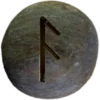Last Updated on January 17, 2025
Table of Contents


Skáldskaparmál (pronounced: SKAHLD-ska-par-mahl) means “The Language of Poetry” in Old Norse. It is a part of Snorra Edda or Prose Edda, which was written by the Icelandic poet Snorri Sturluson in the 13th century. As one of the major sections in the Prose Edda, Skáldskaparmál offers guidance on the use of poetic language. It also helps poets understand kennings, which are metaphorical phrases used in Norse poetry. These kennings, like “whale-road” for the sea or “battle-sweat” for blood, create vivid imagery and reveal a rich storytelling tradition.
In Skáldskaparmál, the god Ægir visits Asgard to meet the Æsir, who gather to share stories and explain poetic language. Bragi, the god of poetry, explains how poets create meaning through kennings and poetic forms. Through stories, the gods reveal how to use these techniques, describing their origins and linking them to events in the lives of the gods and legendary heroes.
The work also includes myths that illustrate the history and deeds of gods like Thor and Odin. This helps poets find inspiration for their verses. For example, the section includes the story of Thor’s battle with the giant Hrungnir, providing poets with a vivid account to craft their kennings and poems.
Skáldskaparmál remains a key source for understanding Old Norse poetic style. It captures the deep respect Norse culture held for words, storytelling, and imagination, which adds to the richness of this historical text. The guidance it provides for poetic form and expression still influences literary and artistic works today.
Elder Futhark Runes Associated with Skáldskaparmál
The Ansuz and Kenaz runes strongly connect with Skáldskaparmál. Ansuz, symbolizing wisdom, language, and inspiration, represents the wisdom shared among the gods in the text. Kenaz, symbolizing knowledge and creativity, reflects the creativity poets need to use kennings and craft poetry. Together, these runes embody the essence of Norse poetic language and expression.
Importance in Asatru
In Asatru, Skáldskaparmál offers wisdom on poetic language and divine storytelling. It connects followers to Norse beliefs about the power of words and creativity. The stories of the gods and their interactions provide inspiration and insight, encouraging practitioners to express reverence for the gods in verse. Through Skáldskaparmál, followers draw closer to the traditions of storytelling, which is central to Asatru practice and understanding.

